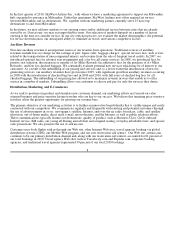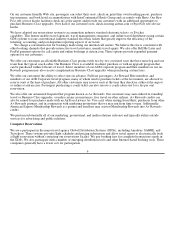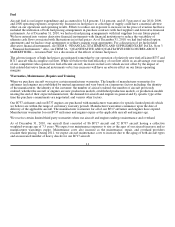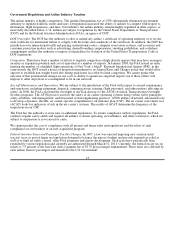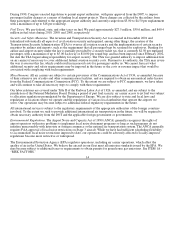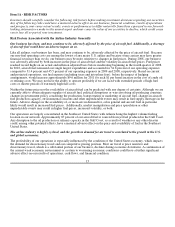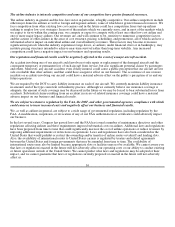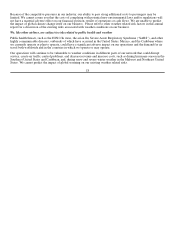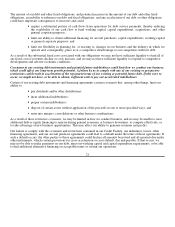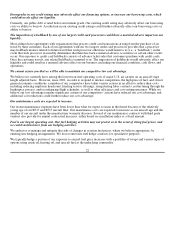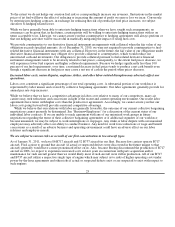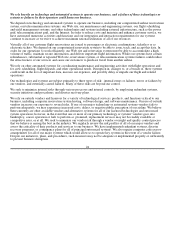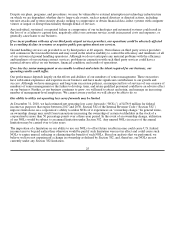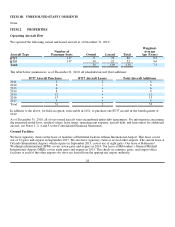Airtran 2010 Annual Report Download - page 26
Download and view the complete annual report
Please find page 26 of the 2010 Airtran annual report below. You can navigate through the pages in the report by either clicking on the pages listed below, or by using the keyword search tool below to find specific information within the annual report.
Because of the competitive pressures in our industry, our ability to pass along additional costs to passengers may be
limited. We cannot assure you that the costs of complying with potential new environmental laws and/or regulations will
not have a material adverse effect on our financial position, results of operations or cash flows. We are unable to predict
the impact of global climate change itself on our business. Please refer to other weather related risk factors in this annual
report for a discussion of the existing risks associated with weather conditions on our business.
We, like other airlines, are subject to risks related to public health and weather
Public health threats, such as the H1N1 flu virus, the avian flu, Severe Acute Respiratory Syndrome (“SARS”), and other
highly communicable diseases, outbreaks of which have occurred in the United States, Mexico, and the Caribbean where
we currently operate or plan to operate, could have a significant adverse impact on our operations and the demand for air
travel both worldwide and in the countries in which we operate or may operate.
Our operations will continue to be vulnerable to weather conditions in different parts of our network that could disrupt
service, create air traffic control problems, and decrease revenue and increase costs, such as during hurricane season in the
Southeast United States and Caribbean, and, during snow and severe winter weather in the Midwest and Northeast United
States. We cannot predict the impact of global warming on our existing weather related risks.
18


